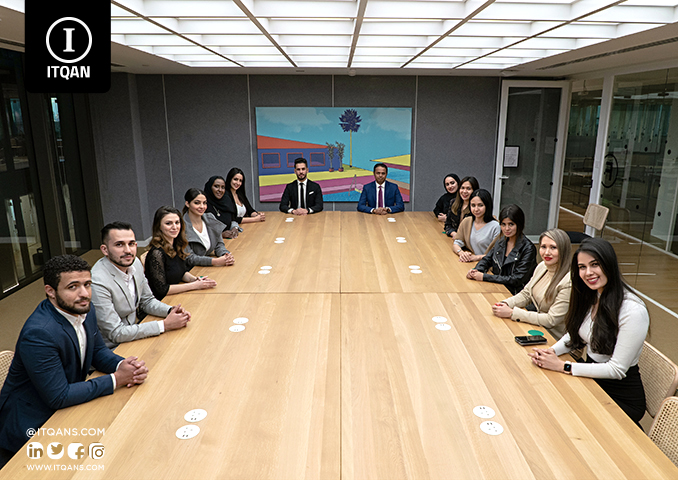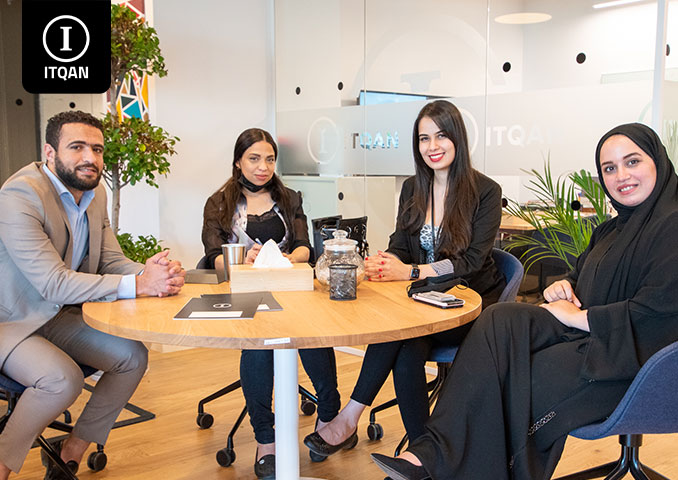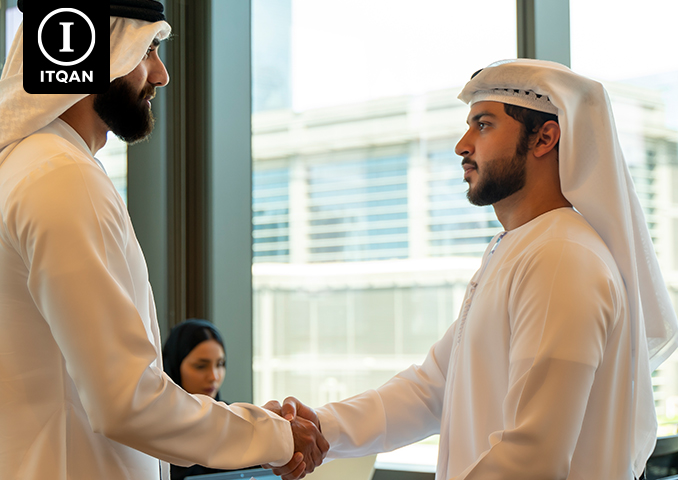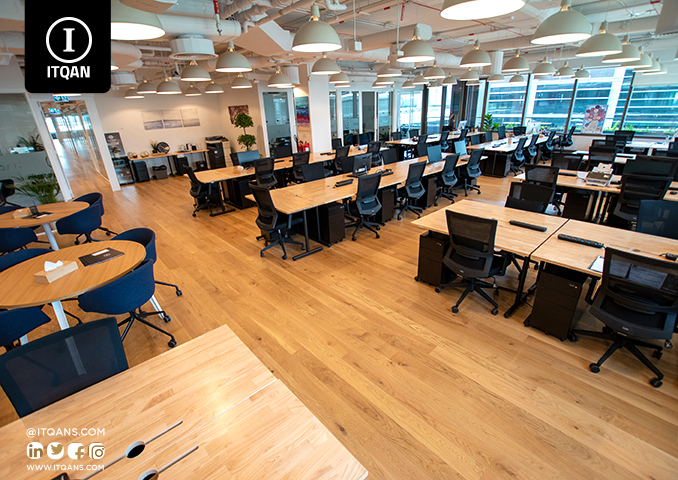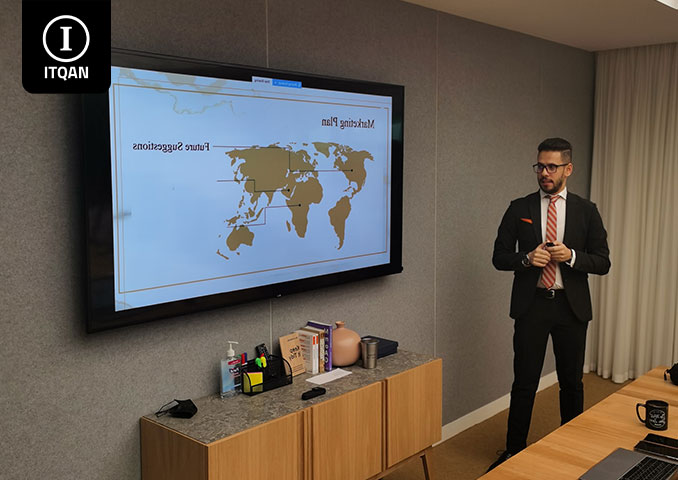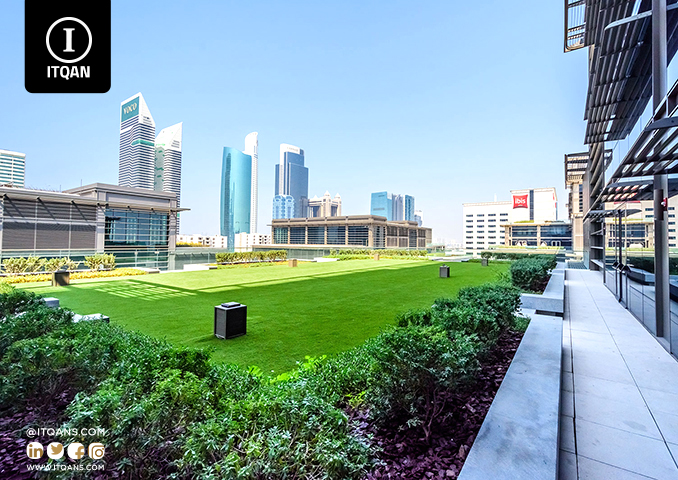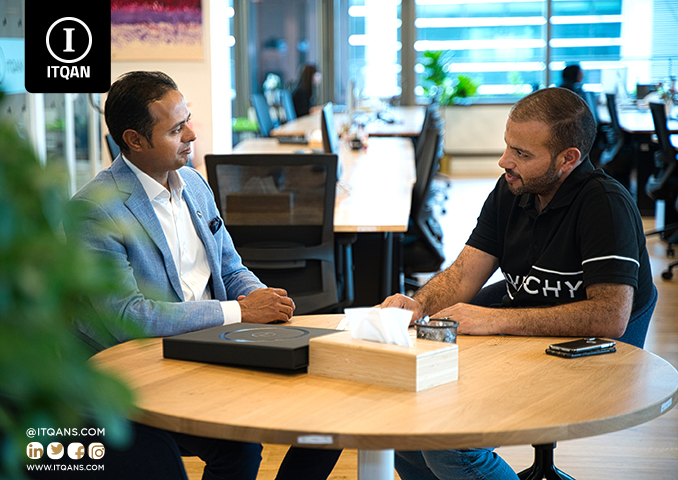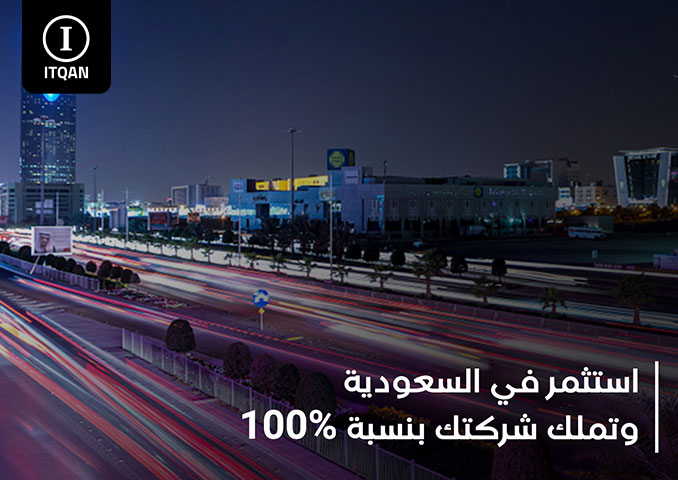With the continuous growth and remarkable economic development in the United Arab Emirates, the country is witnessing a remarkable economic recovery and attracting significant investments from all over the world. The Emirates is considered one of the most important destinations Investing in the Emirates providing an encouraging and advanced investment environment that offers many promising opportunities for investors. Through its visionary economic strategy and the diversity of its economic sectors, the UAE offers a range of exciting and diverse investment areas. These areas are characterized by advanced infrastructure, excellent government facilities, and a favorable investment climate that attracts companies and investors alike. One of the most important investment areas in the UAE is Dubai, which is considered a global financial and commercial center that combines cultural diversity and advanced infrastructure. Dubai provides a suitable investment environment for emerging, medium and large companies, and is one of the fastest growing cities in the world. Abu Dhabi is also an important investment area in the UAE, characterized by its advanced energy and infrastructure sector, in addition to major investments in tourism, real estate and technology. The Sharjah region is also an attractive investment environment, focusing on developing innovation and technology, and encouraging investment in creative industries, education and scientific research. In short, the UAE has a variety of investment areas that provide promising opportunities for investors, and constitute an ideal destination for achieving success and good returns on investments.

The most important investment areas in the Emirates
جدول المحتوى
ToggleInvesting in the UAE
Investing in the UAE The United Arab Emirates is considered an exciting opportunity for many global investors, given the dynamic and advanced economic environment that the country offers. The UAE has many advantages that make it a preferred investment destination, including political and economic stability, advanced infrastructure, and wide economic diversity.
The UAE offers a globally competitive investment environment, with the government adopting innovative investment policies aimed at attracting capital and encouraging businesses. Thanks to modern and flexible investment laws, investors can benefit from quick and easy company establishment procedures, and obtain encouraging tax and financial facilities.
The UAE is witnessing rapid economic growth in several key sectors such as oil and gas, tourism, technology and innovation. These sectors provide vast investment opportunities, whether for large investors or emerging and innovative companies.
Moreover, the UAE provides a multicultural and tolerant work environment, which attracts global talents and competencies to contribute to business development and achieve success. In addition, the UAE adopts government policies to support innovation and entrepreneurship, and provides support and financing programs for emerging and innovative companies.
In short, investing in the UAE is an exciting opportunity to benefit from the dynamic economic environment, rapid development, and encouraging government facilities, making it an ideal destination for investors seeking success and economic growth.
The most important investment areas in the Emirates
In the UAE, there are several areas that feature diverse and promising investment opportunities. Here are some of the most important of these areas:
- Dubai: Dubai is one of the world’s leading business and tourism hubs. It boasts advanced infrastructure and easy access to regional and global markets. Real estate, hospitality, trade and financial services are among the key areas for investment.
- Abu Dhabi: As the capital of the UAE, Abu Dhabi offers extensive investment opportunities in the oil and gas sectors, as well as tourism, infrastructure, education and healthcare.
- Sharjah: Sharjah is a hub for culture, education and creative industries. It offers investment opportunities in culture, entertainment, trade and manufacturing.
- Ajman: Ajman is known for providing investment opportunities in the real estate, industrial and commercial sectors, and is working to enhance its policy to attract investors.
- Ras Al Khaimah: Ras Al Khaimah is distinguished by its strategic location and natural beauty, and provides investment opportunities in tourism, renewable energy, agriculture and marine industries.
- Umm Al Quwain: Umm Al Quwain is a hub for maritime and logistics industries, offering investment opportunities in maritime industries, international trade and tourism.
How to invest in the UAE
Investing in the UAE It requires a good study and evaluation of the available opportunities and challenges. The steps for investing in the UAE can be summarized as follows:
- Determine investment objectives: The investor must define his goals and future plans to ensure that they are compatible with the available investment opportunities.
- Research and Analysis: The investor should conduct extensive research and analysis of the market and potential sectors to invest in, with a focus on economic growth, competitiveness, and political and legal developments.
- Financial and legal advice: It is advisable to cooperate with financial experts and lawyers who are specialized in local laws and regulations to obtain specialized advice on investing in the UAE.
- Choose the type of investment: The investor must choose the right type of investment, whether it is in real estate, stock markets, business, or other available sectors.
- Risk and return assessment: The investor should evaluate the potential risks associated with the investment and compare them with the expected returns to ensure that an appropriate balance is achieved between them.
- Registration and licensing procedures: Investing in the UAE requires registration procedures and obtaining the necessary licenses in accordance with local and federal laws.
- Investment Management: After investing, the investor must monitor and manage his investments on a regular basis, ensuring that he takes advantage of the available opportunities to achieve the desired return.
Investment opportunities available in the UAE
In the UAE, there are a variety of investment opportunities available in several economic sectors. Here are some of the investment opportunities available in the UAE:
- Real estate: The real estate sector, commercial and residential, is one of the most important investment opportunities in the UAE, especially in cities such as Dubai, Abu Dhabi and Sharjah. This includes investments in residential and commercial buildings, hotels and integrated residential communities.
- Renewable energy: The UAE offers promising investment opportunities in renewable energy, such as solar and wind energy, given the government’s commitment to achieving sustainable energy and energy diversity goals.
- Technology and Innovation: The UAE is a hub for innovation and technology development in the region, offering investment opportunities in areas such as fintech, e-commerce, artificial intelligence, and blockchain technologies.
- Tourism and Hospitality: Tourism and hospitality are among the most important economic sectors in the UAE, providing opportunities for investment in luxury hotels, restaurants, tourist resorts, and other tourism services.
- Creative and entertainment industries: There are many investment opportunities in the arts, culture and entertainment sectors, such as cinema, cultural and sporting events, and creative industries such as films, music and arts.
- International Trade and Logistics: Due to its strategic location, the UAE offers investment opportunities in the logistics and international trade sector, including ports, free zones and logistics services.
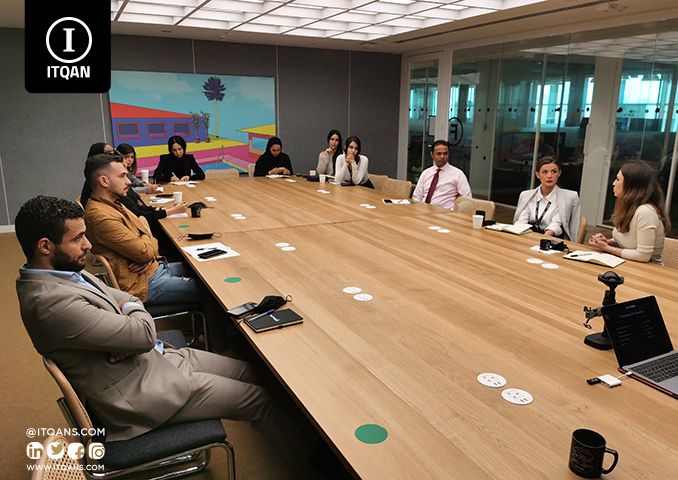
Investing in the UAE
Investment costs in the UAE
Costs Investing in the UAE It varies greatly depending on the type and size of the investment, and is also affected by economic, legal and social factors. Here are some factors that may affect the costs of investing in the UAE:
- Company costs and licenses: This item includes the costs of establishing the company, including registration and licensing fees, and consulting costs if required.
- Real estate costs: If the investment requires the purchase or rental of real estate, costs may include leasing or property purchase fees, property taxes, and legal fees.
- Labor and operating costs: These costs include employee wages, social insurance, training costs, and more.
- Advertising and marketing costs: These costs can be high, especially if the investment requires attracting customers or potential customers.
- Taxes and fees costs: Taxes and fees vary based on business type, geographic location, and local government regulations.
- Daily operating costs: These costs include electricity, water, maintenance, insurance, supplies, etc., and may vary depending on the size of the business and activity.
- Shipping and logistics costs: If the investment requires importing or exporting goods, costs may include shipping, customs, insurance and storage costs.
- Consulting and professional services costs: These costs may include consulting costs such as legal, financial, tax and regulatory advice.
Legal form of foreign direct investment projects
In the UAE, foreign investors can participate in many direct investment projects, but these investors must adhere to the laws and regulations related to foreign investment. The legal form of foreign direct investment projects in the UAE is usually one of the following formulas:
- Limited Liability Company (LLC): A limited liability company is a popular form of business for small and medium-sized enterprises. Foreign investors can be partners in an LLC with up to 49% ownership, while a local partner in the UAE must own the remaining percentage.
- Joint Stock Company (PJSC): A joint stock company is a form of public company, where shares are offered to the public. Foreign investors can participate in joint stock companies provided that they usually own less than 49% of the shares.
- Sole proprietorship or partnership: Foreign investors can establish sole proprietorships or partnerships in the UAE, but they must have a local partner to register.
- Free Zones: Free zones in the UAE provide a liberal investment environment where foreign investors can fully own companies without the need for a local partner. Companies registered in free zones are subject to the laws and regulations of each zone.
- Participation in real estate: Foreign investors can purchase real estate in the UAE and use it for investment purposes, whether for rent or sale.
How to choose the best investment in the UAE?
Choosing the best investment in the UAE requires careful study and comprehensive evaluation of many factors. Here are some points that can help you in making this decision:
- Determine investment objectives: Determine whether you are looking for fixed income, growth in investment value, or portfolio diversification, and base your selection on that.
- risk assessment: Assess your risk tolerance and determine the appropriate level of risk you are willing to take, given the time and money you have.
- Research and Analysis: Study the various economic sectors and investment opportunities available in the UAE, and identify the sectors that suit your goals and risks.
- Financial Consulting: Speak to a financial advisor who specializes in investing in the UAE to receive personalized guidance and advice that matches your financial situation and goals.
- Cost-benefit analysis: Evaluate the costs associated with the investment, such as fees, taxes, and commissions, as well as estimate the expected return on the investment over the long term.
- Market and Economic Evaluation: Research UAE market and economic trends, growth projections, and potential political and economic changes that may impact your investments.
- Portfolio diversification: Try to diversify your investment portfolio across different assets and sectors, to reduce risks and increase investment opportunities.
In conclusion, the UAE is undoubtedly a unique and attractive investment destination for both local and international investors. The UAE has a stable and encouraging investment environment and offers a variety of investment opportunities in several thriving economic sectors.
Among the most important areas Investing in the UAEThe real estate sector stands out as one of the most attractive sectors, as many Emirati cities are witnessing major development projects and real estate expansions that attract investors of all kinds.
Energy and infrastructure are also considered strategic sectors that receive attention, given the major economic and developmental transformations witnessed by the UAE, which opens doors for investments in infrastructure projects and renewable energy sources.
The role of innovation and technology in driving economic growth in the UAE cannot be ignored, as the government encourages innovation and supports start-ups and innovative companies, making the technology sector one of the most important areas for investment.
It is also worth noting that the UAE is witnessing continuous developments in the tourism and entertainment, trade and retail, education and training sectors, which creates new opportunities for investment and economic growth.
The most important frequently asked questions about investing in the Emirates
What are the procedures and licenses required to start investing in the UAE?
Starting an investment in the UAE requires procedures such as registering a company and obtaining the necessary licenses from local authorities.
What are the potential challenges and risks of investing in the UAE?
Potential challenges include intense competition, market volatility, and changes in government policies.
Can foreign investors own real estate in the UAE?
Yes, foreign investors are allowed to own real estate in some areas according to local laws.
What are the tax policies applied to investment in the UAE?
Tax policies vary depending on the free zone or economic zone, and investors must comply with local laws.
How can I protect my investments in the UAE?
Investors can protect their investments by ensuring compliance with local laws and checking market conditions regularly.




